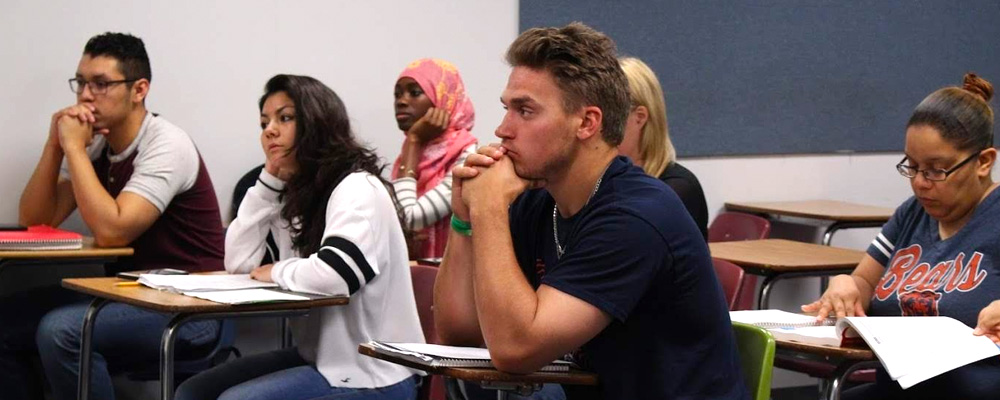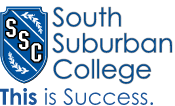
For students with an interest in American government and politics. Courses focus on political power, its application, location, impact; demands on decision makers, their forms and sources; conversion process, congress, presidency, bureaucracy and courts; outputs, policies, implementation, and court decisions.
Faculty are available during scheduled office hours to advise students about their courses and program. Peruse some of the offerings in the Department of Social and Behavioral Sciences.
Mission
The Political Science Department is committed to providing a rigorous and relevant education in the fundamentals of political inquiry necessary to informed citizenship. The Department provides its students with a strong grounding in each of the major fields of Political Science as well as the analytic tools and theoretical approaches needed to be successful in their careers.
Student Learning Outcomes (SLOs)
- Students will possess a basic knowledge in the major areas of political science.
- Students will develop academic writing skills including presentation of data, evidence and argument in all required courses.
- Students will demonstrate the ability to read and think critically about politics and government.
- Students will demonstrate the ability to organize and present data, evidence and argue in clear, thoughtful and persuasive writing.
- Students will measure the impact of cultural, social and economic conditions upon U.S. government policy-makers and public policy.
- Students will discuss the organizational components of national political institutions such as legislatures, administrations, judiciaries, political parties, and organized groups.
- Students will outline the various formal political processes of nomination, election, legislative, budgetary, and legal activities.
- Students will recognize the various forces that enter the political decision-making process and how these forces make themselves felt.
- Students will analyze the various forces of political activity available to citizens and their relative impact upon political policy-making.
- Students will evaluate the major policies of the national and local governments in the fields of welfare, economic regulation, law enforcement, education and finance.
- Students will locate specific sources of information concerning the political, social and economic conditions within the United States.
- Students will apply general explanations of political phenomenon and behavior to specific situations.
- Students will evaluate federalism, historically and contemporaneously, as applying to historical events and movements in the United States.
- Students will recognize the existence of multi-cultural societies and demonstrate an appreciation of multiple perspectives.
Careers:
Students enter into the fields of law, foreign service, journalism and public services as well as careers such as:
- Political
- Geographer
- Political Scientist
- Legislative Assistant
- Lobbyist
- Political Consultant
- Public Administration
Overview for College Success
Overview for College Success (OCS 121) is a course designed to assist students in the navigation of becoming successful in college and life. Major topics include setting academic, career and personal goals; effective communication strategies; study skills; critical thinking; self-discovery; and learning styles. In addition, this course delves into topics such as stress management, diversity and other well-being topics. Students will develop educational and career plans, learn to utilize college resources and receive extensive help in course planning. OCS 121 credit is not calculated in the course minimum credit totals listed in this section.
Students must take OCS 121 if they meet one or more of the following:
- First time degree seeking students
- Transfer student with less than 12 credit hours and no evidence of similar course on transcript
- Registering for 6 or more credits
- Test into 2 or more developmental classes
- Currently does not have OCS credit or registered for OCS
Recommended AA Transfer Curriculum for Political Science
The discipline of political science revolves around government, public policy and ethics, foreign politics, law and judicial process.
This is only a suggested transfer program and might not be appropriate for every student. Some four-year institutions accept more than 62 credit hours in transfer to fulfill requirements in political science. Consult the College & Career Success Center for help in selecting courses appropriate for the program at the college or university where you plan to transfer.
Minimum General Education (42-43)
| Overview for College Success | CREDITS | |
|---|---|---|
| OCS 121 | Overview for College Success | 1 |
| Communications (9) | ||
|---|---|---|
| ENG 101 | Composition and Rhetoric | 3 |
| ENG 102 | Composition and Research | 3 |
| SPE 108 | Oral Communication | 3 |
| Humanities and Fine Arts (9) | ||
| PHL 101 | Introduction to Philosophy | 3 |
| GROUP II | Select from Humanities Electives Students earning an Associate degree must meet the requirement for coursework on improving human relations as defined in Public Act 87-581. | 6 |
| Social and Behavioral Science (9) | ||
| GROUP III | Select from Social Sciences Electives Students earning an Associate degree must meet the requirement for coursework on improving human relations as defined in Public Act 87-581. | 9 |
| Mathematics (3) | ||
| Math requirements for political science vary at four-year institutions. Consult the College & Career Success Center. | ||
MTH 115 MTH 126 | General Education Mathematics OR Fundamentals of Statistics OR Select from Mathematics Electives | 3 |
| Physical and Life Science (7-8) | ||
| GROUP V | Select from Physical and Life Sciences Electives (Must include one lab) | 7-8 |
Area of Concentration/Electives (24-25)
Select from the transfer courses below.
| PSC 101 | American National Government | 3 |
| PSC 102 | American State and Local Governments | 3 |
| PSC 108 | Contemporary Political Problems | 3 |
| PSC 210 | Comparative Foreign Governments | 3 |
| Minimum for AS Degree | 62 | |
|---|---|---|
